6 Best Debt Mutual Funds for Lump sum Investments 2026
Debt Mutual Fund schemes in India have grown over the years. As a result, the best performing mutual debt funds in the market keep on changing. There are various rating systems in place to judge a mutual fund scheme, namely CRISIL, Morning Star, ICRA. These systems evaluate a mutual fund in terms of returns, standard deviation, credit quality of securities, rate movement guidance by RBI, etc.
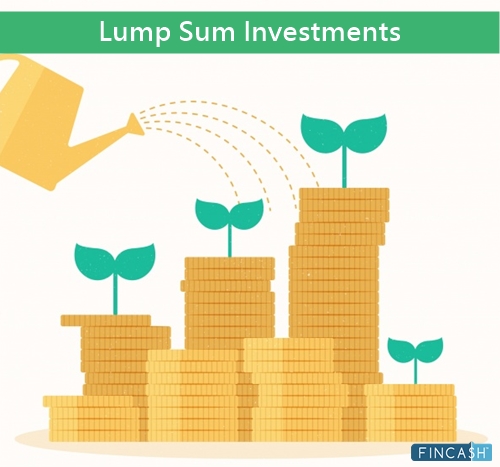
Why To Invest Lump Sum in Debt Mutual Funds?
- Better return than prevailing Fixed Deposit (FD) & Recurring deposit (RD) rates across banks
- Returns are linked to debt markets
- Immediate (T+1) redemption online
- Indexation (Debt Taxation benefits) benefits on returns over three years
Talk to our investment specialist
Best Lumpsum Debt Mutual Funds FY 26 - 27
Below are the top ranked funds from Debt Categories primarily funds having AUM > 500 Crore & are in Ultra-short, Corporate bond, Credit Risk, Low Duration sub categories && Having maturity of less than 3 years and providing highest yields.
Fund Selection Methodology used to find 6 funds
Top 6 Lump sum Debt Mutual Funds
Fund NAV Net Assets (Cr) Min Investment 3 MO (%) 6 MO (%) 1 YR (%) 3 YR (%) 2024 (%) Debt Yield (YTM) Mod. Duration Eff. Maturity ICICI Prudential Regular Savings Fund Growth ₹33.5203
↓ -0.03 ₹5,920 10,000 1.7 4.3 9.6 8.6 9.5 8.28% 1Y 10M 24D 2Y 11M 19D SBI Credit Risk Fund Growth ₹47.539
↓ -0.01 ₹2,175 5,000 1.3 3.3 7.8 8.2 7.9 8.15% 2Y 1M 24D 2Y 10M 17D Kotak Credit Risk Fund Growth ₹30.9061
↓ -0.03 ₹707 5,000 1.6 3.9 9 7.8 9.1 7.8% 1Y 9M 11D 2Y 1M 13D HDFC Low Duration Fund Growth ₹59.923
↓ 0.00 ₹24,647 5,000 1.2 2.8 7 7.2 7.2 7.04% 10M 24D 1Y 11M 5D UTI Treasury Advantage Fund Growth ₹3,691.05
↑ 0.11 ₹2,667 10,000 1.3 3 7.3 7.4 7.5 7.02% 11M 1D 1Y 2M 1D Mahindra Low Duration Bachat Yojana Growth ₹1,693.73
↑ 0.03 ₹599 1,000 1.2 2.6 6.7 6.9 6.9 7.02% 11M 1D 1Y 9D Note: Returns up to 1 year are on absolute basis & more than 1 year are on CAGR basis. as on 18 Feb 26 Research Highlights & Commentary of 6 Funds showcased
Commentary ICICI Prudential Regular Savings Fund SBI Credit Risk Fund Kotak Credit Risk Fund HDFC Low Duration Fund UTI Treasury Advantage Fund Mahindra Low Duration Bachat Yojana Point 1 Upper mid AUM (₹5,920 Cr). Lower mid AUM (₹2,175 Cr). Bottom quartile AUM (₹707 Cr). Highest AUM (₹24,647 Cr). Upper mid AUM (₹2,667 Cr). Bottom quartile AUM (₹599 Cr). Point 2 Established history (15+ yrs). Established history (21+ yrs). Established history (15+ yrs). Oldest track record among peers (26 yrs). Established history (18+ yrs). Established history (9+ yrs). Point 3 Rating: 1★ (bottom quartile). Top rated. Rating: 3★ (upper mid). Rating: 3★ (lower mid). Rating: 4★ (upper mid). Not Rated. Point 4 Risk profile: Moderate. Risk profile: Moderate. Risk profile: Moderately Low. Risk profile: Moderately Low. Risk profile: Moderately Low. Risk profile: Moderately Low. Point 5 1Y return: 9.56% (top quartile). 1Y return: 7.80% (upper mid). 1Y return: 9.05% (upper mid). 1Y return: 6.99% (bottom quartile). 1Y return: 7.33% (lower mid). 1Y return: 6.68% (bottom quartile). Point 6 1M return: 0.78% (upper mid). 1M return: 1.02% (top quartile). 1M return: 0.82% (upper mid). 1M return: 0.70% (lower mid). 1M return: 0.68% (bottom quartile). 1M return: 0.61% (bottom quartile). Point 7 Sharpe: 3.32 (top quartile). Sharpe: 1.80 (bottom quartile). Sharpe: 2.21 (upper mid). Sharpe: 1.85 (lower mid). Sharpe: 2.59 (upper mid). Sharpe: 1.60 (bottom quartile). Point 8 Information ratio: 0.00 (top quartile). Information ratio: 0.00 (upper mid). Information ratio: 0.00 (upper mid). Information ratio: 0.00 (lower mid). Information ratio: 0.00 (bottom quartile). Information ratio: 0.00 (bottom quartile). Point 9 Yield to maturity (debt): 8.28% (top quartile). Yield to maturity (debt): 8.15% (upper mid). Yield to maturity (debt): 7.80% (upper mid). Yield to maturity (debt): 7.04% (lower mid). Yield to maturity (debt): 7.02% (bottom quartile). Yield to maturity (debt): 7.02% (bottom quartile). Point 10 Modified duration: 1.90 yrs (bottom quartile). Modified duration: 2.15 yrs (bottom quartile). Modified duration: 1.78 yrs (lower mid). Modified duration: 0.90 yrs (top quartile). Modified duration: 0.92 yrs (upper mid). Modified duration: 0.92 yrs (upper mid). ICICI Prudential Regular Savings Fund
SBI Credit Risk Fund
Kotak Credit Risk Fund
HDFC Low Duration Fund
UTI Treasury Advantage Fund
Mahindra Low Duration Bachat Yojana
*List of Debt Mutual Funds having net assets > 500 Crore and Fund have assets under manegement for atleast 3 years.
The fund’s objective is to provide reasonable returns, by maintaining an optimum balance of safety, liquidity and yield, through investments in a basket of debt and money market instruments with a view to delivering consistent performance. However, there can be no assurance that the investment objective of the Scheme will be realized. Below is the key information for ICICI Prudential Regular Savings Fund Returns up to 1 year are on (Erstwhile SBI Corporate Bond Fund) The investment objective will be to actively manage a portfolio of good
quality corporate debt as well as Money Market Instruments so as to provide
reasonable returns and liquidity to the Unit holders. However there is no
guarantee or assurance that the investment objective of the scheme will
be achieved. Research Highlights for SBI Credit Risk Fund Below is the key information for SBI Credit Risk Fund Returns up to 1 year are on (Erstwhile Kotak Income Opportunities Fund) The investment objective of the scheme is to generate income by investing in debt/ and money market securities across the yield curve and credit spectrum. The scheme will also seek to maintain reasonable liquidity within the fund. Research Highlights for Kotak Credit Risk Fund Below is the key information for Kotak Credit Risk Fund Returns up to 1 year are on (Erstwhile HDFC Cash Management Fund - Treasury Advantage Plan) To generate regular income through investment in debt securities and money market instruments. Research Highlights for HDFC Low Duration Fund Below is the key information for HDFC Low Duration Fund Returns up to 1 year are on The scheme will endeavour to generate an attractive return for its investors consistent with capital preservation and liquidity by investing in a portfolio of quality debt securities, money market instruments and structured obligations. Research Highlights for UTI Treasury Advantage Fund Below is the key information for UTI Treasury Advantage Fund Returns up to 1 year are on (Erstwhile Mahindra ALP-Samay Bachat Yojana) The investment objective of the Scheme is to provide reasonable returns, commensurate with a low to moderate level of risk and high degree of liquidity, through a portfolio constituted of money market and debt instruments. However, there is no assurance that the investment objective of the Scheme will be realized and the Scheme does not assure or guarantee any returns. Research Highlights for Mahindra Low Duration Bachat Yojana Below is the key information for Mahindra Low Duration Bachat Yojana Returns up to 1 year are on 1. ICICI Prudential Regular Savings Fund
ICICI Prudential Regular Savings Fund
Growth Launch Date 3 Dec 10 NAV (18 Feb 26) ₹33.5203 ↓ -0.03 (-0.08 %) Net Assets (Cr) ₹5,920 on 31 Dec 25 Category Debt - Credit Risk AMC ICICI Prudential Asset Management Company Limited Rating ☆ Risk Moderate Expense Ratio 1.43 Sharpe Ratio 3.32 Information Ratio 0 Alpha Ratio 0 Min Investment 10,000 Min SIP Investment 100 Exit Load 0-1 Years (1%),1 Years and above(NIL) Yield to Maturity 8.28% Effective Maturity 2 Years 11 Months 19 Days Modified Duration 1 Year 10 Months 24 Days Growth of 10,000 investment over the years.
Date Value 31 Jan 21 ₹10,000 31 Jan 22 ₹10,637 31 Jan 23 ₹11,163 31 Jan 24 ₹12,051 31 Jan 25 ₹13,030 31 Jan 26 ₹14,220 Returns for ICICI Prudential Regular Savings Fund
absolute basis & more than 1 year are on CAGR (Compound Annual Growth Rate) basis. as on 18 Feb 26 Duration Returns 1 Month 0.8% 3 Month 1.7% 6 Month 4.3% 1 Year 9.6% 3 Year 8.6% 5 Year 7.4% 10 Year 15 Year Since launch 8.3% Historical performance (Yearly) on absolute basis
Year Returns 2024 9.5% 2023 8.5% 2022 7.2% 2021 5.1% 2020 6.2% 2019 9.8% 2018 9.5% 2017 6.6% 2016 6.8% 2015 9.5% Fund Manager information for ICICI Prudential Regular Savings Fund
Name Since Tenure Manish Banthia 7 Nov 16 9.24 Yr. Akhil Kakkar 22 Jan 24 2.03 Yr. Data below for ICICI Prudential Regular Savings Fund as on 31 Dec 25
Asset Allocation
Asset Class Value Cash 13.75% Equity 9.52% Debt 76.34% Other 0.38% Debt Sector Allocation
Sector Value Corporate 62.53% Government 14.64% Cash Equivalent 12.93% Credit Quality
Rating Value A 21.46% AA 57.58% AAA 20.96% Top Securities Holdings / Portfolio
Name Holding Value Quantity 6.68% Gs 2040
Sovereign Bonds | -6% ₹336 Cr 34,926,400 Embassy Office Parks REIT (Real Estate)
-, Since 30 Apr 25 | EMBASSY4% ₹252 Cr 5,791,885 Keystone Realtors Limited
Debentures | -4% ₹234 Cr 23,500 Millennia Realtors Private Limited
Debentures | -4% ₹210 Cr 2,100 Vedanta Limited
Debentures | -3% ₹201 Cr 20,000 Adani Enterprises Limited
Debentures | -3% ₹198 Cr 20,000 Bamboo Hotel And Global Centre (Delhi) Private Limited
Debentures | -3% ₹187 Cr 18,500 Jtpm Metal TRaders Limited
Debentures | -3% ₹186 Cr 18,000 Varroc Engineering Limited
Debentures | -3% ₹172 Cr 25,000 Nirma Limited
Debentures | -3% ₹151 Cr 15,000 2. SBI Credit Risk Fund
SBI Credit Risk Fund
Growth Launch Date 19 Jul 04 NAV (18 Feb 26) ₹47.539 ↓ -0.01 (-0.01 %) Net Assets (Cr) ₹2,175 on 31 Dec 25 Category Debt - Credit Risk AMC SBI Funds Management Private Limited Rating ☆☆☆☆ Risk Moderate Expense Ratio 1.55 Sharpe Ratio 1.8 Information Ratio 0 Alpha Ratio 0 Min Investment 5,000 Min SIP Investment 500 Exit Load 0-12 Months (3%),12-24 Months (1.5%),24-36 Months (0.75%),36 Months and above(NIL) Yield to Maturity 8.15% Effective Maturity 2 Years 10 Months 17 Days Modified Duration 2 Years 1 Month 24 Days Growth of 10,000 investment over the years.
Date Value 31 Jan 21 ₹10,000 31 Jan 22 ₹10,519 31 Jan 23 ₹10,972 31 Jan 24 ₹11,900 31 Jan 25 ₹12,873 31 Jan 26 ₹13,827 Returns for SBI Credit Risk Fund
absolute basis & more than 1 year are on CAGR (Compound Annual Growth Rate) basis. as on 18 Feb 26 Duration Returns 1 Month 1% 3 Month 1.3% 6 Month 3.3% 1 Year 7.8% 3 Year 8.2% 5 Year 6.9% 10 Year 15 Year Since launch 7.5% Historical performance (Yearly) on absolute basis
Year Returns 2024 7.9% 2023 8.1% 2022 8.3% 2021 4.2% 2020 5% 2019 9.8% 2018 6.5% 2017 6.2% 2016 6.9% 2015 10.5% Fund Manager information for SBI Credit Risk Fund
Name Since Tenure Lokesh Mallya 1 Feb 17 9.01 Yr. Data below for SBI Credit Risk Fund as on 31 Dec 25
Asset Allocation
Asset Class Value Cash 14.08% Equity 4.2% Debt 81.34% Other 0.38% Debt Sector Allocation
Sector Value Corporate 64.06% Government 17.28% Cash Equivalent 14.08% Credit Quality
Rating Value A 18.19% AA 60.03% AAA 21.78% Top Securities Holdings / Portfolio
Name Holding Value Quantity 7.02% Gs 2031
Sovereign Bonds | -7% ₹153 Cr 15,000,000 Infopark Properties Limited
Debentures | -5% ₹105 Cr 10,500 Renew Solar Energy (Jharkhand Five) Private Limited
Debentures | -5% ₹103 Cr 11,000 H.G. Infra Engineering Limited
Debentures | -5% ₹99 Cr 10,000 Nj Capital Private Limited
Debentures | -5% ₹99 Cr 10,000 6.48% Gs 2035
Sovereign Bonds | -5% ₹98 Cr 10,000,000 Jtpm Metal TRaders Limited
Debentures | -4% ₹93 Cr 9,000 Renserv Global Private Limited
Debentures | -4% ₹80 Cr 8,000 Avanse Financial Services Limited
Debentures | -4% ₹80 Cr 8,000 The Sandur Manganese And Iron Ores Limited
Debentures | -4% ₹80 Cr 8,500 3. Kotak Credit Risk Fund
Kotak Credit Risk Fund
Growth Launch Date 11 May 10 NAV (18 Feb 26) ₹30.9061 ↓ -0.03 (-0.09 %) Net Assets (Cr) ₹707 on 31 Dec 25 Category Debt - Credit Risk AMC Kotak Mahindra Asset Management Co Ltd Rating ☆☆☆ Risk Moderately Low Expense Ratio 1.71 Sharpe Ratio 2.21 Information Ratio 0 Alpha Ratio 0 Min Investment 5,000 Min SIP Investment 1,000 Exit Load 0-1 Years (1%),1 Years and above(NIL) Yield to Maturity 7.8% Effective Maturity 2 Years 1 Month 13 Days Modified Duration 1 Year 9 Months 11 Days Growth of 10,000 investment over the years.
Date Value 31 Jan 21 ₹10,000 31 Jan 22 ₹10,535 31 Jan 23 ₹10,625 31 Jan 24 ₹11,399 31 Jan 25 ₹12,190 31 Jan 26 ₹13,217 Returns for Kotak Credit Risk Fund
absolute basis & more than 1 year are on CAGR (Compound Annual Growth Rate) basis. as on 18 Feb 26 Duration Returns 1 Month 0.8% 3 Month 1.6% 6 Month 3.9% 1 Year 9% 3 Year 7.8% 5 Year 5.9% 10 Year 15 Year Since launch 7.4% Historical performance (Yearly) on absolute basis
Year Returns 2024 9.1% 2023 7.1% 2022 6.4% 2021 0.9% 2020 5.3% 2019 6.6% 2018 9% 2017 6.2% 2016 6.6% 2015 10.4% Fund Manager information for Kotak Credit Risk Fund
Name Since Tenure Deepak Agrawal 11 May 10 15.74 Yr. Vihag Mishra 24 Oct 25 0.27 Yr. Data below for Kotak Credit Risk Fund as on 31 Dec 25
Asset Allocation
Asset Class Value Cash 4.88% Equity 9.87% Debt 84.67% Other 0.58% Debt Sector Allocation
Sector Value Corporate 71.29% Government 13.38% Cash Equivalent 4.88% Credit Quality
Rating Value A 11.73% AA 61.24% AAA 27.03% Top Securities Holdings / Portfolio
Name Holding Value Quantity 6.48% Gs 2035
Sovereign Bonds | -8% ₹54 Cr 5,465,000
↑ 5,465,000 Jubilant Bevco Limited
Debentures | -8% ₹54 Cr 500 Bamboo Hotel And Global Centre (Delhi) Private Limited
Debentures | -7% ₹50 Cr 5,000 Vedanta Limited
Debentures | -7% ₹50 Cr 5,000 TATA Projects Limited
Debentures | -7% ₹50 Cr 5,000 Rec Limited
Debentures | -7% ₹50 Cr 5,000 Aditya Birla Real Estate Limited
Debentures | -6% ₹45 Cr 4,500 Aditya Birla Renewables Limited
Debentures | -6% ₹40 Cr 4,000 Au Small Finance Bank Limited
Debentures | -4% ₹30 Cr 30 Embassy Office Parks REIT (Real Estate)
-, Since 30 Apr 25 | EMBASSY4% ₹28 Cr 636,630 4. HDFC Low Duration Fund
HDFC Low Duration Fund
Growth Launch Date 18 Nov 99 NAV (18 Feb 26) ₹59.923 ↓ 0.00 (-0.01 %) Net Assets (Cr) ₹24,647 on 31 Dec 25 Category Debt - Low Duration AMC HDFC Asset Management Company Limited Rating ☆☆☆ Risk Moderately Low Expense Ratio 1.03 Sharpe Ratio 1.85 Information Ratio 0 Alpha Ratio 0 Min Investment 5,000 Min SIP Investment 300 Exit Load NIL Yield to Maturity 7.04% Effective Maturity 1 Year 11 Months 5 Days Modified Duration 10 Months 24 Days Growth of 10,000 investment over the years.
Date Value 31 Jan 21 ₹10,000 31 Jan 22 ₹10,375 31 Jan 23 ₹10,812 31 Jan 24 ₹11,590 31 Jan 25 ₹12,444 31 Jan 26 ₹13,293 Returns for HDFC Low Duration Fund
absolute basis & more than 1 year are on CAGR (Compound Annual Growth Rate) basis. as on 18 Feb 26 Duration Returns 1 Month 0.7% 3 Month 1.2% 6 Month 2.8% 1 Year 7% 3 Year 7.2% 5 Year 5.9% 10 Year 15 Year Since launch 7.1% Historical performance (Yearly) on absolute basis
Year Returns 2024 7.2% 2023 7.4% 2022 7% 2021 4.1% 2020 3.7% 2019 8.1% 2018 8% 2017 6.5% 2016 6.4% 2015 8.6% Fund Manager information for HDFC Low Duration Fund
Name Since Tenure Anupam Joshi 27 Oct 15 10.27 Yr. Praveen Jain 6 Oct 22 3.33 Yr. Dhruv Muchhal 22 Jun 23 2.62 Yr. Data below for HDFC Low Duration Fund as on 31 Dec 25
Asset Allocation
Asset Class Value Cash 11.99% Debt 87.73% Other 0.28% Debt Sector Allocation
Sector Value Corporate 64.34% Government 24.33% Cash Equivalent 11.05% Credit Quality
Rating Value AA 13.51% AAA 86.49% Top Securities Holdings / Portfolio
Name Holding Value Quantity Goi Floating Rate Bond 2031
Sovereign Bonds | -5% ₹1,260 Cr 123,000,000
↑ 500,000 Goi Floating Rate Bond 2033
Sovereign Bonds | -4% ₹1,084 Cr 105,000,000 Sikka Ports & Terminals Limited
Debentures | -3% ₹718 Cr 7,200
↓ -500 Jubilant Beverages Limited
Debentures | -3% ₹639 Cr 59,740 National Bank For Agriculture And Rural Development
Debentures | -3% ₹629 Cr 62,500 Rec Limited
Debentures | -2% ₹520 Cr 52,000 National Bank For Agriculture And Rural Development
Debentures | -2% ₹473 Cr 47,000 Small Industries Development Bank Of India
Debentures | -2% ₹433 Cr 43,000 National Housing Bank
Debentures | -2% ₹425 Cr 42,500 National Housing Bank
Debentures | -2% ₹424 Cr 42,100 5. UTI Treasury Advantage Fund
UTI Treasury Advantage Fund
Growth Launch Date 23 Apr 07 NAV (18 Feb 26) ₹3,691.05 ↑ 0.11 (0.00 %) Net Assets (Cr) ₹2,667 on 31 Dec 25 Category Debt - Low Duration AMC UTI Asset Management Company Ltd Rating ☆☆☆☆ Risk Moderately Low Expense Ratio 0.45 Sharpe Ratio 2.59 Information Ratio 0 Alpha Ratio 0 Min Investment 10,000 Min SIP Investment 500 Exit Load NIL Yield to Maturity 7.02% Effective Maturity 1 Year 2 Months 1 Day Modified Duration 11 Months 1 Day Growth of 10,000 investment over the years.
Date Value 31 Jan 21 ₹10,000 31 Jan 22 ₹10,921 31 Jan 23 ₹11,433 31 Jan 24 ₹12,259 31 Jan 25 ₹13,195 31 Jan 26 ₹14,140 Returns for UTI Treasury Advantage Fund
absolute basis & more than 1 year are on CAGR (Compound Annual Growth Rate) basis. as on 18 Feb 26 Duration Returns 1 Month 0.7% 3 Month 1.3% 6 Month 3% 1 Year 7.3% 3 Year 7.4% 5 Year 7.2% 10 Year 15 Year Since launch 7.2% Historical performance (Yearly) on absolute basis
Year Returns 2024 7.5% 2023 7.7% 2022 7.1% 2021 4.5% 2020 9% 2019 7.3% 2018 -4.2% 2017 7.3% 2016 7% 2015 8.9% Fund Manager information for UTI Treasury Advantage Fund
Name Since Tenure Anurag Mittal 1 Dec 21 4.17 Yr. Data below for UTI Treasury Advantage Fund as on 31 Dec 25
Asset Allocation
Asset Class Value Cash 26.69% Debt 72.98% Other 0.32% Debt Sector Allocation
Sector Value Corporate 62.6% Cash Equivalent 23.54% Government 13.54% Credit Quality
Rating Value AAA 100% Top Securities Holdings / Portfolio
Name Holding Value Quantity 30/04/2026 Maturing 182 DTB
Sovereign Bonds | -4% ₹123 Cr 1,250,000,000
↑ 1,250,000,000 Embassy Office Parks Reit
Debentures | -4% ₹120 Cr 1,200 7.86% Karnataka Sdl 2027
Sovereign Bonds | -3% ₹102 Cr 1,000,000,000
↑ 1,000,000,000 Rec Limited
Debentures | -3% ₹101 Cr 10,000 Summit Digitel Infrastructure Limited
Debentures | -3% ₹100 Cr 1,000 Jamnagar Utilities & Power Private Limited
Debentures | -3% ₹99 Cr 1,000 08/05/2026 Maturing 182 DTB
Sovereign Bonds | -3% ₹99 Cr 1,000,000,000
↑ 1,000,000,000 Embassy Office Parks Reit
Debentures | -3% ₹90 Cr 900 LIC Housing Finance Ltd
Debentures | -3% ₹76 Cr 750 Nirma Limited
Debentures | -3% ₹75 Cr 7,500 6. Mahindra Low Duration Bachat Yojana
Mahindra Low Duration Bachat Yojana
Growth Launch Date 15 Feb 17 NAV (18 Feb 26) ₹1,693.73 ↑ 0.03 (0.00 %) Net Assets (Cr) ₹599 on 31 Dec 25 Category Debt - Low Duration AMC Mahindra Asset Management Company Pvt. Ltd. Rating Risk Moderately Low Expense Ratio 1.09 Sharpe Ratio 1.6 Information Ratio 0 Alpha Ratio 0 Min Investment 1,000 Min SIP Investment 500 Exit Load NIL Yield to Maturity 7.02% Effective Maturity 1 Year 9 Days Modified Duration 11 Months 1 Day Growth of 10,000 investment over the years.
Date Value 31 Jan 21 ₹10,000 31 Jan 22 ₹10,334 31 Jan 23 ₹10,744 31 Jan 24 ₹11,467 31 Jan 25 ₹12,288 31 Jan 26 ₹13,090 Returns for Mahindra Low Duration Bachat Yojana
absolute basis & more than 1 year are on CAGR (Compound Annual Growth Rate) basis. as on 18 Feb 26 Duration Returns 1 Month 0.6% 3 Month 1.2% 6 Month 2.6% 1 Year 6.7% 3 Year 6.9% 5 Year 5.6% 10 Year 15 Year Since launch 6% Historical performance (Yearly) on absolute basis
Year Returns 2024 6.9% 2023 7.2% 2022 6.7% 2021 3.7% 2020 3.1% 2019 6.3% 2018 7.9% 2017 6.5% 2016 2015 Fund Manager information for Mahindra Low Duration Bachat Yojana
Name Since Tenure Rahul Pal 15 Feb 17 8.97 Yr. Amit Garg 1 Jan 26 0.08 Yr. Data below for Mahindra Low Duration Bachat Yojana as on 31 Dec 25
Asset Allocation
Asset Class Value Cash 22.64% Debt 77.06% Other 0.31% Debt Sector Allocation
Sector Value Corporate 75.93% Cash Equivalent 15.48% Government 8.28% Credit Quality
Rating Value AA 34.71% AAA 65.29% Top Securities Holdings / Portfolio
Name Holding Value Quantity Godrej Properties Limited
Debentures | -5% ₹27 Cr 2,700,000 Embassy Office Parks Reit
Debentures | -4% ₹25 Cr 2,500,000 LIC Housing Finance Ltd
Debentures | -4% ₹25 Cr 2,500,000 Bajaj Housing Finance Limited
Debentures | -4% ₹25 Cr 2,500,000 Rec Limited
Debentures | -4% ₹25 Cr 2,500,000 360 One Prime Limited
Debentures | -4% ₹24 Cr 2,400,000 Godrej Industries Limited
Debentures | -4% ₹24 Cr 2,350,000 TVS Credit Services Limited
Debentures | -3% ₹20 Cr 2,000,000 Muthoot Finance Limited
Debentures | -3% ₹20 Cr 2,000,000 Small Industries Development Bank Of India
Debentures | -3% ₹20 Cr 2,000,000
Smart Tips to Look for in Debt Funds
1. Yield
The yield is a measure of the interest income generated by the Bonds in the Portfolio.
For instance, let's assume that a bond has a face value of INR 100 with an 8 percent coupon rate. This means that the investor will earn INR 8 p.a., on each bond that he invests in. As the bonds are traded in the open market, the price will fluctuate each Business Day. The interest rates rise and fall and demand for the bonds moves up and down. And this impacts the price of the bond. Let’s assume interest rates rise to 10 percent. Even then the investor will continue to earn INR 8. So to increase the yield to 10 percent, which is the current market rate of interest, the price of the bond will have to drop to INR 80.
In another instance, lets assume that the interest rates fall to 6 percent. Again, the investor will continue to earn INR 8. This time the price of the bond will have to go up to INR 133.
If we look at these assumptions, there are two aspects to it- the one is that the yield is not fixed, but fluctuates to changes in the interest rate. The second one is the price of the bond moves inversely to interest rates. It moves to maintain a level where it will attract buyers.
2. Yield to Maturity
The yield to maturity(YTM) of a debt mutual fund indicates the running yield of the fund. When comparing debt funds on the basis of YTM, one should also look at that fact that how is the extra yield being generated. Is this at the cost of as lower portfolio quality? Investing in not so good quality instruments has its own issues. You don't want to end up investing in a debt fund which has such bonds or securities that may default later on. So, always look at the portfolio yield and balance it off with the credit quality.
3. Modified Duration
Modified duration provides a fair indication of a bond’s sensitivity to a change in interest rates. The higher the duration, the more Volatility the bond exhibits with a change in interest rates
4. Credit Quality of Portfolio
In order to invest in Best Debt Funds, checking the credit quality of the bonds and debt securities is an essential parameter. Bonds are assigned a credit rating by various agencies based on their ability to pay the money back. A bond with AAA rating is considered to be the best credit rating and also implies a safe and secure investment. If one truly wants safety and considers this as the paramount parameter in selecting the best debt fund, then getting into a fund with very high-quality debt instruments (AAA or AA+) may be the desired option.
How to Invest in Debt Lump Sum Online?
Open Free Investment Account for Lifetime at Fincash.com.
Complete your Registration and KYC Process
Upload Documents (PAN, Aadhaar, etc.). And, You are Ready to Invest!
FAQs
1. How do debt fund managers identify which is high-quality security?
A: Debt fund managers have their techniques for evaluating each bond and assessing the debtor's chances of defaulting to pay the bond. Usually, the higher the credit rating lesser is the chance for the creditor defaulting.
2. Why is debt mutual funds low-risk?
A: Debt mutual funds deal with securities and bonds along other money market instruments. The chances of these instruments failing are usually less, and hence, your investment will remain secure, thereby making debt mutual funds low-risk investments.
3. Do fund managers invest in low-quality securities?
A: Yes, sometimes fund managers do invest in low-quality securities if chances of good ROI exist. However, this will be a calculated risk taken by your fund manager and only if the portfolio of investment already has stable, high-quality securities.
4. Is there any short-term debt mutual fund?
A: Yes, if you opt for a Liquid Fund in which investments are made in money market instruments that have a maturity of 91 days, then you can realize your investment in a matter of three months. This is a short-term investment that you can undertake to get a better understanding of debt mutual funds.
5. Can I invest long-term in a debt mutual fund?
A: Yes, you can invest long-term in debt mutual funds. For example, suppose you invest in the Nippon India Credit Risk Fund or the ICICI Prudential Regular Savings Fund. In that case, it is better that you hold your investment at least for one year, 5 months, and 19 days and 2 years, one month, and 2 days respectively, to get maximum ROI. But you can keep investing beyond that for 3 years.
All efforts have been made to ensure the information provided here is accurate. However, no guarantees are made regarding correctness of data. Please verify with scheme information document before making any investment.



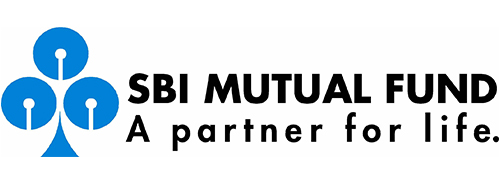
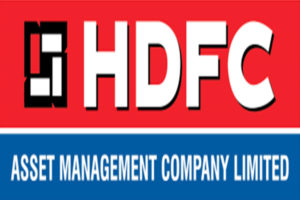

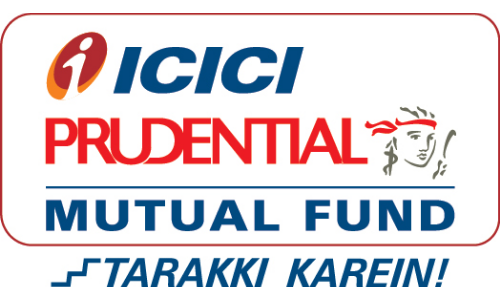
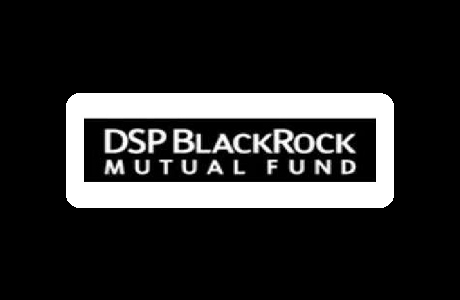





Research Highlights for ICICI Prudential Regular Savings Fund